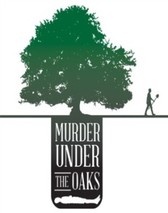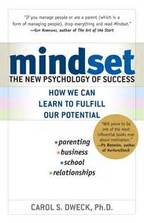Understanding Motivation: Why do some writers complete a novel...and others do not? (yet...)10/12/2015 What motivates some writers to complete a novel? This question has been on my mind for a while. Last week, I did a keynote for another university on motivating and engaging students in higher education (a facet of my day job I won’t go into here). After my talk, someone who knew I was also a novelist said to me, “You know, I used to be a really good writer. All through school, from elementary school through college, everyone thought I would be a novelist. But as an adult, every time I’ve tried to sit down and write a novel, I just can’t do it. How did you do it?” Obviously, this person wasn’t asking me how to write a novel—I’m sure she is well aware of the scores of books that explore the craft of novel writing. But she was asking me a more fundamental question about motivation. “I want to write a book. I have the skills to write a book. I even have a great idea. Other people have written books, some far less skilled and imaginative than me. So why can’t I actually complete something I want to do?”  Why indeed? The day after I delivered that keynote on motivation, I traveled to Raleigh where Bouchercon, the world mystery convention, was getting underway. There, I heard variations of the same question being posed over and over to authors everywhere, in panels, in the book room, over drinks in the bar. How did you do it? And underlying that question, the more desperate ones: Why can’t I do this? What do you know that I don’t? To be clear, I am focusing here on the questions posed to novelists about how they complete a book-length manuscript (or do it more than once), not about how they got their books published (a process which generally transcends self-motivation). I began to pay more attention to how authors replied to this question. Setting the flippant replies aside (“Lots of chocolate!” “Wine!”), a lot of them said things like “Find the kind of writing style that works for you and stick to it.” “Write a set amount of words a day!” “Just keep going!” or most succinctly, “Butt. In. Chair.” Everyone has heard this sincerely intended, tried-and-true advice a million times. The questioner would dutifully nod, but the puzzled look would remain. How do I actually do that? I know what I’m supposed to do, but I don’t actually do it. Why can’t I do what you do? [It's like trying to lose 15 pounds. We all know we're supposed to exercise daily, eat vegetables, avoid sugar, and watch our portions. Or whatever. But it's hard to do.] On the flip side, when I was chatting with some of these writers, I’d ask them what they thought was keeping them from finishing their novels. Here, there were a few variations on a set of themes. Sometimes they focused on time. I have a full time job. I’m taking care of my children, aging parent etc. I can’t find a set time every day to write. I don’t have time to do the research. Or sometimes, they focused on the story itself. I don’t know where to begin. I have writer’s block. The middle is completely confusing. I don’t know how to end my story. My critique group has confused me and I don’t know what to do. Sometimes, they focused on doubt or self-worth or other emotions. I’m just not sure if my story is any good. I don’t know if readers will like it. People are expecting something really great from me, but they’ll know I’m a fraud. I’m not really a good writer. All challenges. All difficult and stressful things. All things that can keep a person from completing a novel. But I’m telling you with some confidence: Every writer who has successfully completed a book-length novel has probably experienced all or most of the same constraints, challenges and boulders in the road. But the difference is, they successfully managed to navigate the obstacles. So the question is: How? Or maybe, Why? [And the answer is not, I assure you, that they are somehow better or more talented than everyone else!] Interestingly, motivation theory can do much to explain why some people successfully complete a given task, and others do not. I’ll say right now that I don’t have a magical novel-completion formula on hand. But I do have a set of questions and some thoughts that might help writers explore their own motivations more fully. These questions include:
Go ahead. Think about these questions. Write down a few thoughts. I’ll wait. Okay. So onto some principles of motivation theory: Consider why you are writing a novel in the first place: The Motivation Continuum. We often think of motivation as a fairly simple dichotomy, that we are either extrinsically or intrinsically motivated to perform tasks. But the reality is, motivation--as researchers Deci and Ryan have suggested--is actually on a continuum, from a more external sense of control, to a more internal sense of control. On one end of the continuum, an individual performs an activity to achieve a separate outcome. On the other end of the continuum, the individual engages in an activity out of inherent satisfaction. So consider why you are truly writing a novel: At the most extrinsic, you would be only writing to fulfill an outside commitment or obligation. I guess an example here might be someone being asked to write a novel that they really don’t want to write (“My grandmother thinks I should write a novel about my grandfather and I have no interest in doing so.”) At the next level along the continuum, someone might complete a task to avoid guilt or shame (“My parents spent a lot of money putting me through this MFA program and I have nothing to show for it.”) or out of pride (“My teachers all thought I’d be the first to write a novel.”) Those are very low-level external motivators. At the next level, the person consciously values a certain goal or regulation, or may accept an action as personally important (“I’ve always been a good writer; I’ve always wanted to be a novelist, so that’s why I’m writing a novel.”) Moving along the continuum, someone would have a more internal sense of control over the task, but there is still some sense of outward regulation (“I really enjoy reading mysteries and I think they will sell well, so I’m going to try my hand at this genre.”) At the far end of the spectrum would be someone completing a task out of pure enjoyment, a deep sense of satisfaction etc (“I just love telling this story; I enjoy the process of crafting this prose.”) So thinking about the nature of your motivation might be helpful here.  However, there is something larger going on than the simple (simple!) task of completing a novel. What is your mindset as a writer? Psychologist Carol Dweck has written extensively about the concept of mindset, which refers to a person’s own beliefs about his or her ability to improve and change (in general, but in this case, as a writer). Simply put, do you believe your ability as a writer is fixed, or can you grow and learn? Essentially, this is the difference between someone with a fixed mindset, and someone with a growth mindset. To answer, consider the following questions:
Writers with a fixed mindset may achieve early on, but often do not live up to their potential. They may believe they are inherently more talented or smarter than their peers, which may initially give them confidence but that confidence slips away over time. If they do not feel their work is perfect, they might feel shame and embarrassment when others provide feedback, and critique the source rather than reflect on the meaning underlying the feedback. They are afraid of risk, and they are often fearful of trying something new. They close themselves off from opportunity, just because the outcome seems unknown. On the other hand, writers with a growth mindset try new things, they learn from their mistakes, and they are often more creative and open to new ideas. Those with a growth mindset usually possess a far stronger sense of “grit,” a character trait possessed by high-achieving individuals. Everyone who completes a novel has grit—the same stamina required of runners completing a marathon. But fortunately, a sense of grit and perseverance can be developed, just as a growth mindset can be cultivated over time. Understanding your mindset might help you better identify the skills you need to work on, and improve your sense of confidence and mastery as a writer. That confidence may help you actually focus on what you need to do, and help you find a more full sense of inherent satisfaction, and maybe even joy, in seeing your story take shape and come to fruition. Just a few thoughts! Happy writing!
3 Comments
10/13/2015 10:30:26 am
Loved this and tweeted it. The mindset approach is so true. It's tough to sustain an "I can do this" mindset over the months and sometimes years it takes to complete a novel. Going to get Dweck's book and read it. Thanks Susanna!
Reply
Allison Baxter
10/15/2015 07:00:46 pm
Yep! Rang true for the successful and failed writers I know!
Reply
Leave a Reply. |
Susanna CalkinsHistorian. Mystery writer. Researcher. Teacher. Occasional blogger. Categories
All
Archives
May 2023
|
 RSS Feed
RSS Feed